Search
Remove Ads
Advertisement
Summary 
Loading AI-generated summary based on World History Encyclopedia articles ...
Search Results
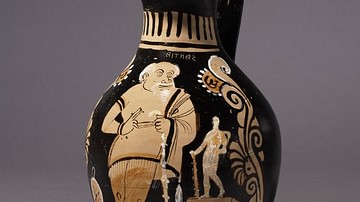
Definition
The Frogs
The Frogs is a comedy play by Aristophanes (c. 445 - c. 385 BCE), the most famous of the comic playwrights of ancient Greece. Named after the creatures who composed the play's chorus, it won first prize at the dramatic festival at Lenaea...

Image
Xanthias from 'The Frogs
A red-figure vessel depicting Xanthias, the slave of Dionysos in the 405 BCE Greek comedy play 'The Frogs' by Aristophanes. Mid-4th century BCE, Campania. (British Museum, London)
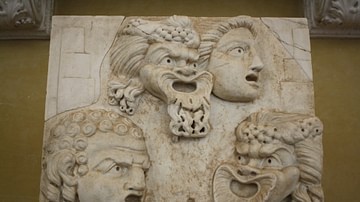
Definition
Aristophanes
Aristophanes (c. 460 - c. 380 BCE) was the most famous writer of Old Comedy plays in ancient Greece and his surviving works are the only examples of that style. His innovative and sometimes rough comedy could also hide more sophisticated...
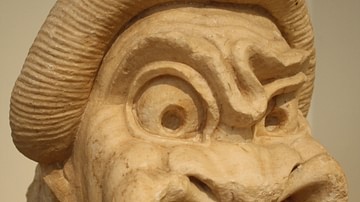
Definition
The Wasps
The Wasps is a play written by the lone representative of Ancient Greece's Old Attic Comedy, Aristophanes (c. 445 - c. 386 BCE). It won second place at the Lenaea competition in 422 BCE. Written in two acts, the play focuses on a reoccurring...
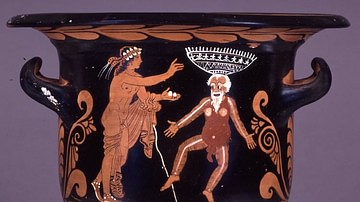
Definition
Ancient Greek Comedy
Ancient Greek comedy was a popular and influential form of theatre performed across ancient Greece from the 6th century BCE. The most famous playwrights of the genre were Aristophanes and Menander and their works and those of their contemporaries...
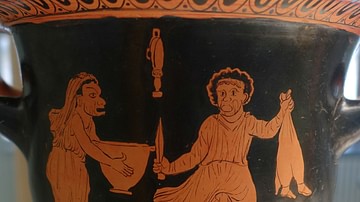
Definition
Thesmophoriazusae
The Thesmophoriazusae (also called The Poet & the Women or Women at the Thesmophoria) is a two-act comedy play written in 411 BCE by the great Greek comic playwright, Aristophanes. The play's principal focus is on the Greek tragedian Euripides...

Definition
Ancient Greek Theatre
Greek theatre began in the 6th century BCE in Athens with the performance of tragedy plays at religious festivals. These, in turn, inspired the genre of Greek comedy plays. The two types of Greek drama would be hugely popular and performances...

Definition
Ten Plagues of Egypt
The story of the ten plagues of Egypt is found in chapters 7-12 of the Book of Exodus. The story depicts the natural disasters sent by the God of Israel to convince Pharaoh to let the Hebrew slaves leave Egypt. The narrative purpose of the...

Definition
Ancient Greek Literature
Greek literature has influenced not only its Roman neighbors to the west but also countless generations across the European continent. Greek writers are responsible for the introduction of such genres as poetry, tragedy, comedy, and western...
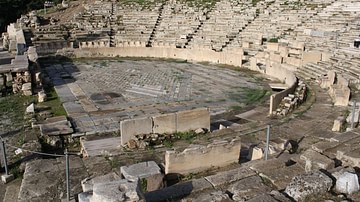
Article
Theatre of Dionysos Eleuthereus
The theatre of Dionysos Eleuthereus on the south slope of the acropolis of Athens was first built in the 6th century BCE. Modified and expanded over the centuries, it is the oldest Greek theatre and is the site where some of the most famous...